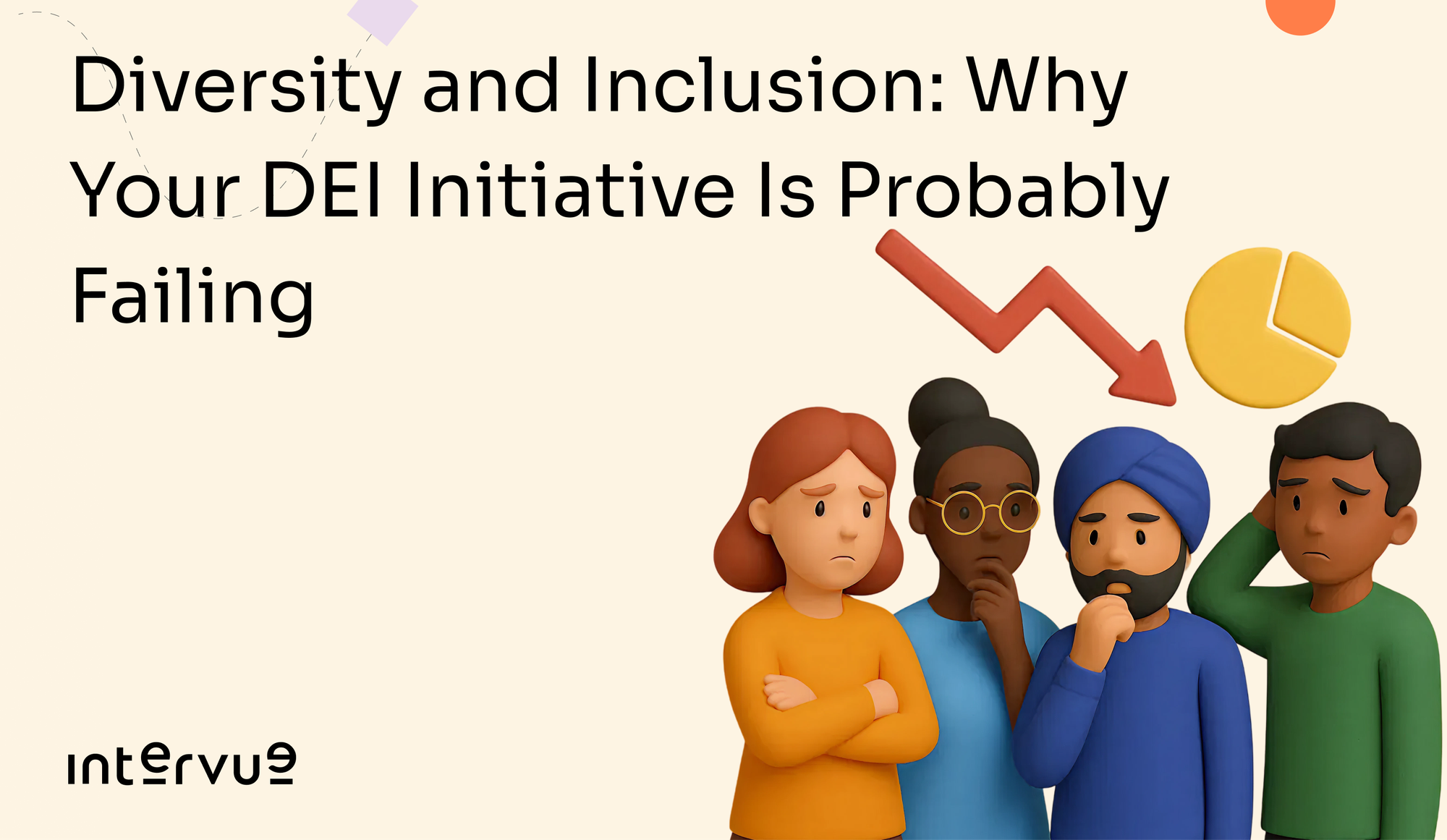Overview
Introduction
What is Downleveling?
Avoiding Downleveling in Behavioral Interviews
Why Downleveling Happens
Dealing with Downleveling: Strategies and Mindset
When to Decline a Down-Leveled Offer
Your hiring needs to get stronger
Stay updated with our latest blog posts
The concept of "downleveling" has become increasingly relevant, often leaving professionals with mixed feelings and unanswered questions.
Downleveling occurs when a candidate, often with considerable experience, is hired or positioned at a level below their expectations or perceived seniority. While the phenomenon isn't unique to tech, it’s especially prevalent in this sector due to complex role hierarchies and varying definitions of "seniority" across companies.
This guide covers what downleveling is, why it happens, how to avoid it in behavioral interviews, and tips for handling it if it does occur.
Downleveling is the practice of hiring or promoting an employee to a position or level below what their experience and qualifications might suggest. This can happen during hiring processes, performance reviews, or even restructuring within a company.
While downleveling can be beneficial in some cases—such as when individuals want to transition to a new field and need to gain foundational experience—it’s often a source of frustration for seasoned professionals. Imagine applying for a senior role only to be offered a mid-level position. Not only can it affect your compensation, but it may also impact your career growth and morale.

Common scenarios of Downleveling
Company Culture Mismatch: Every company defines "seniority" differently. A "senior engineer" in one company may be equivalent to a "mid-level engineer" at a larger, more established firm.
Skill Alignment: Companies often look for specific skills or experiences that align with their unique projects. Even if you're experienced, lacking these particular skills might lead to downleveling.
Lack of Behavioral Alignment: Behavioral interviews assess how well candidates fit within a company’s culture. If there are doubts about fit or leadership style, downleveling may be suggested to better integrate the candidate into the team.
Behavioral interviews are critical in hiring processes, often used to evaluate not just technical competency but also leadership, teamwork, problem-solving, and communication skills. Companies often downlevel candidates if they feel that their responses in behavioral interviews don’t reflect the competencies expected at the targeted level.
Here’s how to strengthen your behavioral interview game and avoid downleveling:
1. Research the Company’s Leveling Structure
Different companies have unique leveling systems. For example, an L5 engineer at Google might not be equivalent to an L5 at Amazon. Research the company’s hierarchy and the expectations for each level. LinkedIn or job forums like Reddit are good resources for insights into role requirements at specific companies.
2. Prepare STAR-Format Responses with a Seniority Angle
When answering behavioral questions, aim to frame your responses using the STAR method (Situation, Task, Action, Result), emphasizing responsibilities that showcase your senior-level competencies. For example:
- Situation: Describe a complex project that required leadership and strategic thinking.
- Task: Emphasize your role as a decision-maker or leader.
- Action: Detail the strategies you implemented to drive success.
- Result: Highlight the positive impact on the project or team, focusing on metrics or outcomes that demonstrate senior-level achievement.
3. Demonstrate Decision-Making and Ownership
Senior roles often require a high degree of ownership. In your responses, convey times when you took full responsibility for a project’s success or failure. Recruiters look for candidates who not only lead projects but also manage risks, mentor juniors, and adapt strategies to achieve goals.
4. Ask Clarifying Questions about Role Expectations
During interviews, don’t hesitate to ask specific questions about what the company expects from a candidate at the targeted level. This can prevent misunderstandings, showing you’re engaged and clear about the role's requirements. You might ask:
- “Could you describe the expectations for senior engineers in terms of leadership?”
- “What does success look like for someone at this level within the first year?”
By framing your behavioral interview responses in ways that reflect leadership, ownership, and strategic insight, you can position yourself more confidently for the role you desire, minimizing the chance of downleveling.
Despite your best efforts, downleveling might still happen. Understanding why it occurs can help you evaluate whether accepting a down-leveled role is beneficial for your long-term career goals.
1. Hiring Risk Management
Companies may downlevel candidates to reduce risks. A senior role often involves higher expectations for results, and if a hiring manager perceives that the candidate might need time to acclimate or requires training in certain areas, downleveling might feel like a safer approach.
2. Skill and Experience Mismatch
As seen in resources like the Pragmatic Engineer, seniority isn’t only about the number of years worked; it’s about relevant experience. If a company works heavily with technologies or systems that you haven’t managed directly, they may view you as a better fit at a lower level, even if you have years of experience in a related field.
3. Cultural and Behavioral Fit Concerns
Cultural alignment is increasingly important in today’s workforce. If your behavior or attitude doesn’t align with the company’s expectations for a senior role, it may lead to downleveling. Companies look for candidates who can work well within their specific environment and may offer a junior role if they sense potential friction.
4. Budget Constraints
Sometimes, a company may recognize your qualifications but simply lacks the budget to offer the level (and salary) you’re aiming for. Instead of losing a qualified candidate, they may downlevel to fit within budgetary limits.
While downleveling can be a frustrating experience, recognizing these common reasons can help you gauge whether the role still aligns with your career goals and personal values.

If you’re offered a position below your anticipated level, you don’t have to make an immediate decision. Here are strategies for evaluating and navigating a down-leveled offer.
1. Evaluate the Role’s Growth Potential
Downleveling isn’t always negative. Consider whether the company has a clear path for promotion. Is the company known for internal mobility and growth? If so, downleveling might be a temporary stepping stone rather than a career setback. Platforms like Jointaro discuss when and why downleveling may benefit you in the long term.
2. Negotiate a Review Timeline
If you accept a down-leveled offer, negotiate a timeline for review, ideally six to twelve months, to assess your performance and potential for promotion. By having a predefined checkpoint, you’ll have an opportunity to demonstrate your capabilities and revisit your position based on concrete achievements.
3. Focus on Skill Development and Networking
If you’re down-leveled, focus on acquiring the skills or experience that led to this decision. Use the position to close skill gaps, expand your network within the company, and establish yourself as a valuable team member. Over time, this approach can lead to upward mobility.
4. Keep Long-Term Goals in Mind
Assess whether the position aligns with your long-term goals. If the down-leveled role offers the chance to develop skills or gain industry exposure that could help you advance, it may still be a worthwhile opportunity. On the other hand, if it feels like a step backward with limited growth potential, it might be better to explore other options.
In some cases, declining a down-leveled offer may be the best decision. Here are a few red flags to consider:
- Lack of Growth Opportunities: If the company cannot commit to a review timeline or promote from within, the down-leveled role may limit your career progression.
- Misalignment with Career Goals: If the job doesn’t align with your career aspirations or will not provide relevant experience, it might be worth waiting for an offer that better matches your skills and ambitions.
- Budget and Role Constraints: If the downleveling stems from budget limitations and isn’t likely to change, you might find better compensation and alignment with another company.
Ultimately, the decision to accept or decline a down-leveled offer should be based on an honest assessment of your career trajectory and the role’s alignment with your long-term goals.

Final Thoughts
If you’re currently facing the risk of downleveling or preparing for an interview, consider signing up with Intervue to access expert resources and support for behavioral interview preparation, salary negotiation, and career development.
Our platform is designed to help professionals like you confidently position yourself at the right level, avoiding downleveling pitfalls and unlocking your full potential. Sign up today to start your journey towards a more aligned career path!
Your hiring needs to get stronger
Stay updated with our latest blog posts






